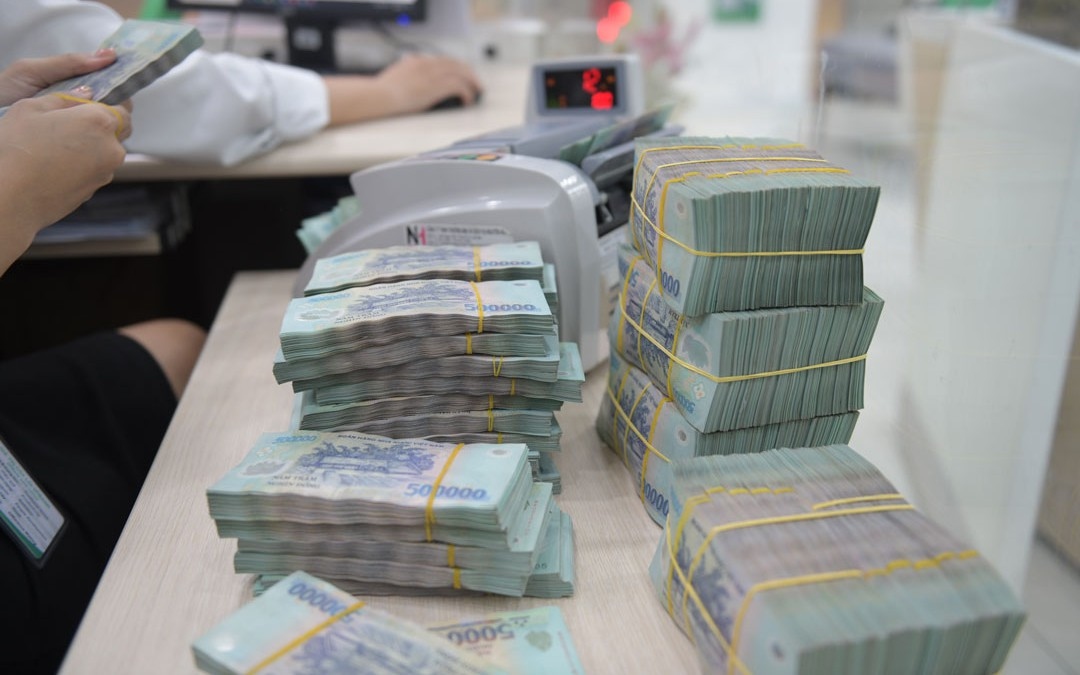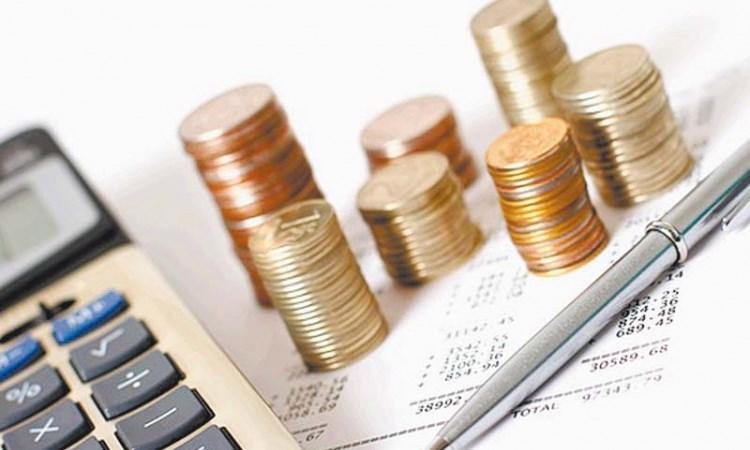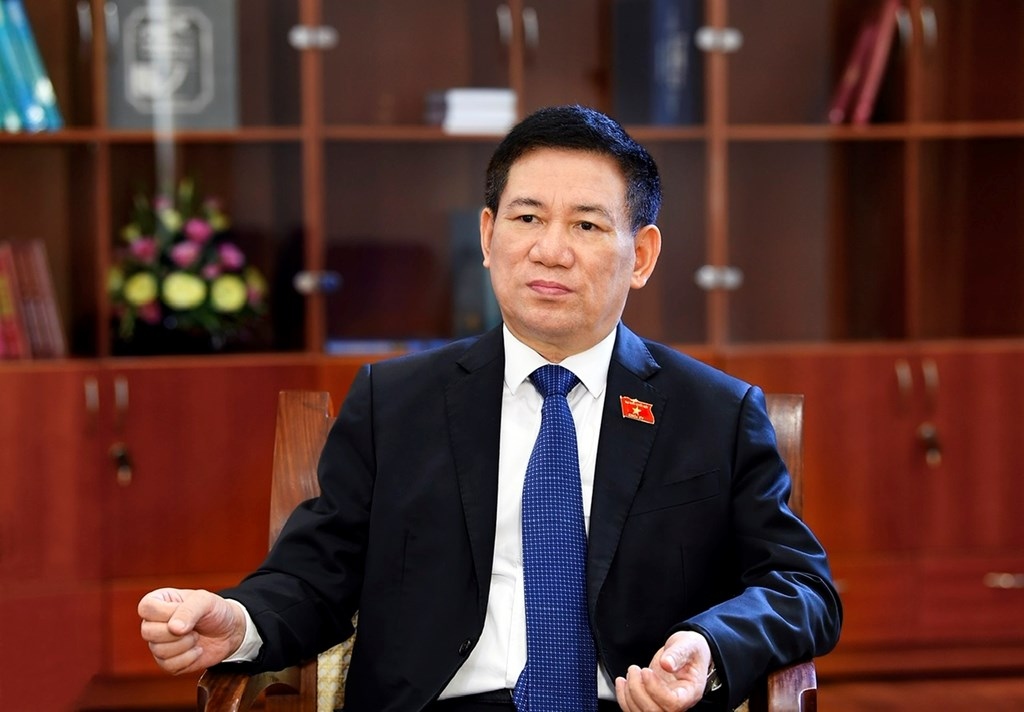Financial support policy for businesses, individuals over VND 193,000 billion
Since the beginning of 2023, the global situation continues to change rapidly, complexly, and unpredictably, impacting most countries and regions globally. Along with the bright spots in economic development, the production and business activities and the economy also have to face many constraints, difficulties, challenges such as growth not meeting the set requirements; production and business activities of enterprises and individuals still face difficulties; input costs for production and export still remain high and tend to increase…
In that context, the Ministry of Finance has actively monitored the actual developments to study, propose authorized levels and issue many tax, fee, and land rent solutions to support businesses, individuals, and the economy for recovery and development, contributing to macroeconomic stability, inflation control, thereby contributing to the positive achievements that have been achieved.

From January 1, 2023, to December 25, 2023, about VND 193,400 billion has been exempted, reduced, extended taxes, fees, and land rent for businesses and individuals (Illustrative image: KT)
“2023 is a difficult year when the economy is making efforts to overcome post-Covid-19 issues while still facing many difficulties and challenges. However, the Ministry of Finance has overcome difficulties, been proactive, flexible, and timely in managing fiscal policies to support the economy, remove difficulties for enterprises and individuals, contributing to macroeconomic stability, inflation control, and promoting economic growth,” emphasized Deputy Minister of Finance Nguyen Duc Chi.
Many tax, fee, and land rent solutions with significant support values and wide support scope have been and are being implemented to support businesses, individuals, and the economy. In particular, the policies of reducing value-added tax applied to many goods and services subject to a 10% tax rate and reducing environmental protection tax on the above-mentioned gasoline, oil, and grease items have had a “dual effect”, helping to reduce the cost of goods and services, thereby promoting production and business activities and creating more employment for workers, while contributing to inflation control, macroeconomic stability and ensuring social security under inflation and high cost pressures.
Data from the Ministry of Finance shows that from January 1, 2023, to December 25, 2023, about VND 193,400 billion has been reduced, extended (with an extension amount of about VND 115,000 billion; a reduced amount of about VND 78,400 billion).
Removing difficulties to set the stage for the future
From the perspective of businesses, Mr. Hong Sun, Chairman of the Korean Chamber of Commerce (KoCham) in Vietnam, shared that 2023 is the most difficult year for businesses in general and the Korean business community in Vietnam in particular. However, the Vietnamese Government has timely issued many policies to support the business community as well as support foreign investment activities. Among them, fiscal policies are highly valued by Korean businesses in Vietnam for helping support sustainable development enterprises and recovery capability enhancement. In particular, policies on tax reduction, fee reduction, land rental reduction… also contribute to improving the business environment, making it more attractive and secure for foreign investment activities.

Fiscal policies are highly valued by businesses for helping support sustainable development enterprises and recovery capability enhancement (Illustrative image: KT)
“In the coming time, fiscal policies need to continue to play their role and strengths in supporting enterprises and the economy to recover. However, for the policies to be effective and substantial, the management agencies need to strengthen dialogue with enterprises, business associations to listen to and understand their needs and requirements. The issuance of fiscal policies needs mutual cooperation, so the Korean business community in Vietnam is always ready to contribute opinions, build policies to contribute to creating favorable conditions for the development of the Vietnamese economy in general,” Mr. Hong Sun expressed.
According to Assoc.Prof.Dr. Vu Sy Cuong, Deputy Head of the Department of Financial Policy Analysis, the Academy of Finance, in the past 2 years, Vietnam’s fiscal policy has been implemented cautiously, and support packages regarding tax reduction, especially value-added tax reduction, special consumption tax, environmental protection tax on gasoline, and oil have been effective.
“The fiscal policies have many positive aspects such as contributing to keeping public debt below 60% of GDP, reducing Government bond interest rates and extending repayment periods, ensuring state budget balance even when the economy is unfavorable,” Assoc.Prof.Dr. Vu Sy Cuong evaluated.
However, Assoc.Prof.Dr. Vu Sy Cuong also noted that in the 2023-2025 period, fiscal policies still face some issues, including economic risks to growth and state budget revenue, and the efficiency of implementing fiscal policies is not high, especially with investment expenditures… Therefore, to stabilize macrofinance, it is necessary to promote disbursement of public investment, stimulate consumer demand, and consider continuing to reduce some types of taxes and fees…
“Fiscal policies must be combined with monetary policies in regulating money supply, such as Government borrowing plans, disbursements, and concerning market liquidity. At the same time, proactivity is needed in policy information and orientation, improving transparency and accountability in fiscal and monetary policies. On the other hand, it is necessary to implement solutions to increase supply such as supporting enterprises affected negatively by the decline in exports, improving institutions…,” recommended Assoc.Prof.Dr. Vu Sy Cuong.
Proactively, reasonably, flexibly, and effectively managing fiscal policies
Minister of Finance Ho Duc Phoc said that in 2024, difficulties will be more than conveniences. In the meantime, the task assigned to the Finance sector is extremely heavy. The estimated total state budget revenue is VND 1.7 quadrillion; the estimated state budget expenditure is VND 2.1 quadrillion; the state budget deficit is VND 399.4 trillion, equivalent to about 3.6% of GDP.

Minister of Finance Ho Duc Phoc
The difficult issue posed for 2024 is to use fiscal policies reasonably to both promote the economy and ensure stable macroeconomic conditions, inflation control, and national financial security. Therefore, the level of relaxation needs to be carefully calculated and considered to achieve the above-mentioned multiple goals, of which macroeconomic stability, inflation control is still the top priority.
“The major objective of the Finance sector is to build and organize proactive, flexible, focal, key fiscal policy management. Ensuring resources to implement development tasks of the economy, society, security, national defense, and social security. In particular, it is important to focus on resources quickly implementing important infrastructure investment projects, connecting regions and regions; salary reform policies, social insurance attached to restructuring, and streamlining the apparatus,” emphasized Minister of Finance Ho Duc Phoc.












